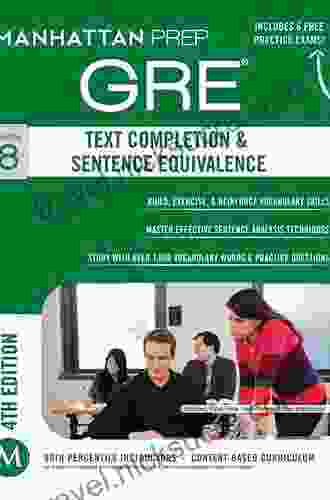The Guilford Practical Intervention in the Schools: A Comprehensive Guide for Practitioners

The Guilford Practical Intervention in the Schools (GPIS) is an evidence-based, school-wide intervention program designed to improve the social, emotional, and behavioral outcomes of students. Developed by Dr. William P. Erchul and colleagues at the University of North Carolina at Greensboro, GPIS has been implemented in schools across the United States and has been shown to be effective in reducing problem behaviors, improving academic performance, and promoting positive school climate.
This comprehensive guide provides practitioners with everything they need to know about GPIS, including:
4.7 out of 5
| Language | : | English |
| File size | : | 2440 KB |
| Text-to-Speech | : | Enabled |
| Screen Reader | : | Supported |
| Enhanced typesetting | : | Enabled |
| Word Wise | : | Enabled |
| Print length | : | 156 pages |
* An overview of the program's theoretical foundations and evidence base * A detailed description of the program's components * Step-by-step instructions for implementing GPIS in schools * Tips for overcoming challenges and sustaining the program
Theoretical Foundations and Evidence Base
GPIS is based on the principles of social learning theory, which posits that behavior is learned through observation and imitation. The program teaches students positive social and emotional skills, such as cooperation, empathy, and self-control, and provides them with opportunities to practice these skills in real-world settings.
GPIS has been extensively researched, and the results have been consistently positive. Studies have shown that GPIS can:
* Reduce problem behaviors, such as aggression, defiance, and disruptive behavior * Improve academic performance, including reading and math achievement * Promote positive school climate, including decreased bullying and increased student engagement
Components of the Program
GPIS is a comprehensive program that includes the following components:
* Classroom lessons: Weekly classroom lessons are delivered to all students in grades K-8. The lessons teach students about social and emotional skills, such as cooperation, empathy, and self-control. * Small group counseling: Small group counseling sessions are provided for students who are struggling with social, emotional, or behavioral problems. The counseling sessions help students to learn and practice positive coping skills. * Teacher consultation: Teachers receive consultation from a GPIS specialist to help them implement the program in their classrooms. The consultation includes training on the program's components, as well as support with managing challenging students. * Parent involvement: Parents are encouraged to participate in GPIS by attending workshops and volunteering in their children's classrooms. The parent involvement component helps to reinforce the program's messages at home.
Implementation Guide
The following steps provide a general overview of how to implement GPIS in schools:
1. Establish a planning team: The first step is to establish a planning team that will be responsible for overseeing the implementation of GPIS. The planning team should include representatives from all levels of the school, including administrators, teachers, counselors, and parents. 2. Conduct a needs assessment: The next step is to conduct a needs assessment to identify the specific needs of the school. The needs assessment should include data on student behavior, academic performance, and school climate. 3. Develop an implementation plan: Once the needs assessment has been completed, the planning team should develop an implementation plan that outlines how GPIS will be implemented in the school. The implementation plan should include a timeline, budget, and evaluation plan. 4. Train staff: All staff members who will be involved in implementing GPIS should receive training on the program's components. The training should include information on the theoretical foundations of the program, as well as step-by-step instructions for delivering the program's components. 5. Implement the program: Once staff have been trained, GPIS can be implemented in the school. The program should be implemented with fidelity, meaning that it should be delivered as intended by the developers. 6. Monitor and evaluate the program: The final step is to monitor and evaluate the program's progress. The evaluation should include data on student behavior, academic performance, and school climate. The evaluation data can be used to make adjustments to the program as needed.
Overcoming Challenges and Sustaining the Program
Implementing GPIS can be challenging, but there are a number of strategies that can be used to overcome challenges and sustain the program. These strategies include:
* Building buy-in from stakeholders: It is important to build buy-in from all stakeholders, including administrators, teachers, parents, and students. This can be done by communicating the benefits of the program and providing opportunities for stakeholders to participate in the planning and implementation process. * Providing ongoing support to staff: Staff members who are implementing GPIS need ongoing support. This support can be provided by the GPIS specialist, as well as by administrators and other school staff. * Monitoring and evaluating the program: The program should be monitored and evaluated on a regular basis to ensure that it is being implemented with fidelity and that it is having a positive impact on students. The evaluation data can be used to make adjustments to the program as needed.
The Guilford Practical Intervention in the Schools is a comprehensive and evidence-based program that can help schools to improve the social, emotional, and behavioral outcomes of students. The program is easy to implement and sustain, and it can be tailored to the specific needs of each school. With its proven track record of success, GPIS is a valuable tool for schools that are looking to create a more positive and supportive learning environment for all students.
Recommended Resources
* Erchul, W. P. (2008). The Guilford Practical Intervention in Schools (GPIS) training manual. Greensboro, NC: University of North Carolina at Greensboro. * Erchul, W. P., & Bierman, K. L. (2001). The Guilford Practical Intervention in Schools (GPIS). In N. A. Fox & S. A. Montgomery (Eds.),Fox on the run. New York: Plenum Press. * Kauffman, J. M., & Payne, L. R. (2009). The Guilford Practical Intervention in Schools: A review of the research. Journal of School Psychology, 47(4),255-275.
4.7 out of 5
| Language | : | English |
| File size | : | 2440 KB |
| Text-to-Speech | : | Enabled |
| Screen Reader | : | Supported |
| Enhanced typesetting | : | Enabled |
| Word Wise | : | Enabled |
| Print length | : | 156 pages |
Do you want to contribute by writing guest posts on this blog?
Please contact us and send us a resume of previous articles that you have written.
 Fiction
Fiction Non Fiction
Non Fiction Romance
Romance Mystery
Mystery Thriller
Thriller SciFi
SciFi Fantasy
Fantasy Horror
Horror Biography
Biography Selfhelp
Selfhelp Business
Business History
History Classics
Classics Poetry
Poetry Childrens
Childrens Young Adult
Young Adult Educational
Educational Cooking
Cooking Travel
Travel Lifestyle
Lifestyle Spirituality
Spirituality Health
Health Fitness
Fitness Technology
Technology Science
Science Arts
Arts Crafts
Crafts DIY
DIY Gardening
Gardening Petcare
Petcare Adrienne Mayor
Adrienne Mayor Jeff Kolby
Jeff Kolby Tricia Wentworth
Tricia Wentworth Kate Morss
Kate Morss Lauren Smith Brody
Lauren Smith Brody Julian Jaynes
Julian Jaynes Kelly Quindlen
Kelly Quindlen Sally Lewis
Sally Lewis Jo Kessel
Jo Kessel Amy Mills
Amy Mills Mark Frost
Mark Frost Lucy J Hood
Lucy J Hood Matt Feeney
Matt Feeney Leo Christie Phd Lmft
Leo Christie Phd Lmft Philip Goff
Philip Goff Richard W Hamming
Richard W Hamming M V Dougherty
M V Dougherty Lynne Delaney
Lynne Delaney Al Strachan
Al Strachan Mike Adamick
Mike Adamick Jeffrey L Gould
Jeffrey L Gould Shawn Bean
Shawn Bean Chris Baker
Chris Baker Brian Jacques
Brian Jacques Thomas Armstrong
Thomas Armstrong Remigiusz Borda
Remigiusz Borda Anthony Pioppi
Anthony Pioppi Kalid Azad
Kalid Azad Patrick Alan Danaher
Patrick Alan Danaher Ian Hardie
Ian Hardie Ana Maria Vasquez
Ana Maria Vasquez Ken Wilber
Ken Wilber Carl Hugo Marcotte
Carl Hugo Marcotte Ancient Wisdom Books
Ancient Wisdom Books Fran London
Fran London Felice Austin
Felice Austin Citizen Scientists League
Citizen Scientists League Shannon Mayer
Shannon Mayer Colin Jones
Colin Jones Keith Payne
Keith Payne Rick Noren
Rick Noren Maya Payne Smart
Maya Payne Smart Carmen Simon
Carmen Simon Elizabeth Gaskell
Elizabeth Gaskell Dominique Moceanu
Dominique Moceanu Timothy Noakes
Timothy Noakes Ann Richardson
Ann Richardson Eric Nylund
Eric Nylund John Todd Staples
John Todd Staples Nathaniel M Lambert
Nathaniel M Lambert M H Johnson
M H Johnson Rae Pica
Rae Pica Don Seddon
Don Seddon Samantha Rodman
Samantha Rodman Mike Stair
Mike Stair Andie Andrews
Andie Andrews Vicky Noland Fitch
Vicky Noland Fitch W R Cheney
W R Cheney Glen Albaugh
Glen Albaugh Lara Carter
Lara Carter Lisa Hendrickson Jack
Lisa Hendrickson Jack Judy Hall
Judy Hall Julia Di Paolo
Julia Di Paolo Deylin Hernandez
Deylin Hernandez Michael P Branch
Michael P Branch Susan Reinhardt
Susan Reinhardt Dennis Chighisola
Dennis Chighisola Malcolm Cameron
Malcolm Cameron Matt Fitzgerald
Matt Fitzgerald Barrie Gunter
Barrie Gunter Didier Sornette
Didier Sornette Leela Prasad
Leela Prasad Libba Bray
Libba Bray Steve Ramirez
Steve Ramirez P A Thomson
P A Thomson F A Hayek
F A Hayek Zoyla Arana
Zoyla Arana Richard M Pino
Richard M Pino Vanessa Cortese
Vanessa Cortese Denis Vasilev
Denis Vasilev Angela Hunt
Angela Hunt Lebawit Lily Girma
Lebawit Lily Girma Paul Foster Case
Paul Foster Case Natalie N Hooks
Natalie N Hooks Zip Reads
Zip Reads L Waithman
L Waithman Marrae Kimball
Marrae Kimball Jon Springer
Jon Springer Armelle Solelhac
Armelle Solelhac Mr Bbq
Mr Bbq Stan D Jensen
Stan D Jensen David Wallace
David Wallace Mike Mcgrath
Mike Mcgrath Ana T Forrest
Ana T Forrest M D Johnson
M D Johnson Stephen K Rose
Stephen K Rose Anderson Cooper
Anderson Cooper Ron Miscavige
Ron Miscavige Kristen Fischer
Kristen Fischer Lee Binz
Lee Binz Bethany Griggs
Bethany Griggs Jonah Berger
Jonah Berger Dr Jyuthica Laghate
Dr Jyuthica Laghate Christopher Allen Brewer
Christopher Allen Brewer Amy Lang Ma
Amy Lang Ma Rudolph E Tanzi
Rudolph E Tanzi Don Bowers
Don Bowers David Guymer
David Guymer Amy Gillett
Amy Gillett Paul Budden
Paul Budden Ian Renshaw
Ian Renshaw John Harker
John Harker Scoop Malinowski
Scoop Malinowski Hewitt Schlereth
Hewitt Schlereth Bob Larson
Bob Larson Samantha Markum
Samantha Markum John Harrison
John Harrison Chris Rawson
Chris Rawson Nat Kringoudis
Nat Kringoudis Helen K Emms
Helen K Emms Kimberly Drew
Kimberly Drew Gravity Prints
Gravity Prints Gerald L Geison
Gerald L Geison Jeremy Andrews
Jeremy Andrews Amy Waeschle
Amy Waeschle Cathy Jipner
Cathy Jipner Kat Cho
Kat Cho John Schwarz
John Schwarz Richard Wilson
Richard Wilson River J Hopkins
River J Hopkins Bea Ellemcy
Bea Ellemcy Angie Manfredi
Angie Manfredi Edna Parks
Edna Parks Kelli Etheridge
Kelli Etheridge Hope Edelman
Hope Edelman Carola Schmidt
Carola Schmidt Paul Seftel
Paul Seftel Michael Breed
Michael Breed Yassin Hall
Yassin Hall Suzanne M Miller
Suzanne M Miller Erica Hunt
Erica Hunt Lucy Parsons
Lucy Parsons Brad Berger
Brad Berger John M Steele
John M Steele Isabelle Hamptonstone Msc
Isabelle Hamptonstone Msc Amy Ewing
Amy Ewing Clare Kostelnick
Clare Kostelnick David Schneider
David Schneider Mary Jane Sterling
Mary Jane Sterling F Remy Diederich
F Remy Diederich Sarah Woodbury
Sarah Woodbury Topher Donahue
Topher Donahue Joe S Bullock
Joe S Bullock Studs Terkel
Studs Terkel M L Bullock
M L Bullock Katie Turner
Katie Turner Sam Farmer
Sam Farmer Karyn Seroussi
Karyn Seroussi Anasazi Foundation
Anasazi Foundation Chris Dixon
Chris Dixon Steffen Hou
Steffen Hou Andrea J Buchanan
Andrea J Buchanan James D Stein
James D Stein Alan Mycroft
Alan Mycroft W Hamilton Gibson
W Hamilton Gibson Kenneth M Adams
Kenneth M Adams Bruce Feiler
Bruce Feiler Emery Lord
Emery Lord Rachel Williams
Rachel Williams Victoria Aveyard
Victoria Aveyard Kathleen Adams
Kathleen Adams Caroline Brandt
Caroline Brandt Arnold Palmer
Arnold Palmer Amy Morin
Amy Morin Best Book Briefings
Best Book Briefings Ana Homayoun
Ana Homayoun Abdul Foster
Abdul Foster Napoleon Hill
Napoleon Hill Ed Douglas
Ed Douglas David N Blank Edelman
David N Blank Edelman Christopher Somerville
Christopher Somerville Captain Terry Reece
Captain Terry Reece Tsippy Monat
Tsippy Monat Joe Loughran
Joe Loughran Louise Parker
Louise Parker Chris Eagle
Chris Eagle Edulink Gmbh
Edulink Gmbh Joe Yonan
Joe Yonan Darcy J Hutchins
Darcy J Hutchins Siena Castellon
Siena Castellon Mindee Arnett
Mindee Arnett Doug Werner
Doug Werner H A Rey
H A Rey J E Reed
J E Reed Liping Ma
Liping Ma Dean Burnett
Dean Burnett Estelle M Rankin
Estelle M Rankin Anna Mcnuff
Anna Mcnuff Elyse Resch
Elyse Resch Samantha Schutz
Samantha Schutz Michael Asanga
Michael Asanga Mark R Leary
Mark R Leary Darren Mccarty
Darren Mccarty Ritesh Modi
Ritesh Modi Rick Joyner
Rick Joyner Leanne Owens
Leanne Owens Peter Dale
Peter Dale Larry Hodges
Larry Hodges Amy Reed
Amy Reed Katie Smith
Katie Smith Brian G Quezada
Brian G Quezada Jay Mclean
Jay Mclean Robin Marantz Henig
Robin Marantz Henig Jen Stevenson
Jen Stevenson Chong Chen
Chong Chen Chip Smith
Chip Smith Dave Collins
Dave Collins J D Kraus
J D Kraus Patrick Mccarthy
Patrick Mccarthy Chris Dicroce
Chris Dicroce Yvonna S Lincoln
Yvonna S Lincoln Karen Robards
Karen Robards Newest Edition Kindle Edition
Newest Edition Kindle Edition Preston Jones
Preston Jones Warren Farrell
Warren Farrell Yvonne Bohn
Yvonne Bohn Brian N Siegel
Brian N Siegel Dr Laura Markham
Dr Laura Markham John Volanthen
John Volanthen Steven D Garber
Steven D Garber Peter Crouch
Peter Crouch Lucy Jane Santos
Lucy Jane Santos Ben Doughty
Ben Doughty Leda Meredith
Leda Meredith Cindy Kuzma
Cindy Kuzma Brandon Wallace
Brandon Wallace Karen Duffy
Karen Duffy Ruth King
Ruth King The 60 Minutes Summary
The 60 Minutes Summary David D Gilmore
David D Gilmore Amy Ellis Nutt
Amy Ellis Nutt Jonathan Kauffman
Jonathan Kauffman Benton Rain Patterson
Benton Rain Patterson Mm Eurobooks
Mm Eurobooks Jennifer Coopersmith
Jennifer Coopersmith Sarah Coxon
Sarah Coxon Barton D Schmitt
Barton D Schmitt Cirrus Teacher Certification Exam Prep Team
Cirrus Teacher Certification Exam Prep Team Carol Davies
Carol Davies Keith Eddleman
Keith Eddleman Amy Scobee
Amy Scobee Dinah Dye
Dinah Dye Josh Mcdowell
Josh Mcdowell Judy I Lin
Judy I Lin Hilary Hinds
Hilary Hinds Rick Sapp
Rick Sapp Corey Lundberg
Corey Lundberg Michael Levin
Michael Levin Chris Fry
Chris Fry Rosita Martinez
Rosita Martinez Andre And Lian De Jel
Andre And Lian De Jel Holly Korbey
Holly Korbey Virginia M Wright
Virginia M Wright Tamara Arnold
Tamara Arnold Deborah L Davis
Deborah L Davis Tedd Tripp
Tedd Tripp Hayley Wickenheiser
Hayley Wickenheiser Po Bronson
Po Bronson Michael Neff
Michael Neff John Peck
John Peck Mark Owens
Mark Owens Lucas Peters
Lucas Peters Anchal Seda
Anchal Seda Perla Issa
Perla Issa John Baxter
John Baxter Blythe Lucero
Blythe Lucero Chris Navarre
Chris Navarre Stephen Spignesi
Stephen Spignesi Archie Bongiovanni
Archie Bongiovanni Corinne Smith
Corinne Smith Galit Shmueli
Galit Shmueli John J Donnelly
John J Donnelly Jane Stern
Jane Stern Marcus Aurelius
Marcus Aurelius Roz Shafran
Roz Shafran Thomas Mcintyre
Thomas Mcintyre Aurelien Broussal Derval
Aurelien Broussal Derval Shayna Oliveira
Shayna Oliveira Dougal Rillstone
Dougal Rillstone Kristy Dilworth
Kristy Dilworth Erica Vogel
Erica Vogel Dennis Donovan M S
Dennis Donovan M S Chuck Wendig
Chuck Wendig Di Hu
Di Hu Saksham Attray
Saksham Attray Erin A Craig
Erin A Craig Edwin Radford
Edwin Radford Myojin Katou
Myojin Katou Osborne Russell
Osborne Russell Dana Richardson
Dana Richardson James Dodson
James Dodson Sara Bowton
Sara Bowton Kindle Comixology
Kindle Comixology Peter Burrows
Peter Burrows Warren Moore
Warren Moore Mark Batterson
Mark Batterson Jennifer Van Allen
Jennifer Van Allen Claude E Shannon
Claude E Shannon Amy Newmark
Amy Newmark Siu Fan Lee
Siu Fan Lee Evelina Weidman Sterling
Evelina Weidman Sterling Lan Chan
Lan Chan Alfred Abuhamad
Alfred Abuhamad Diccon Bewes
Diccon Bewes Michael Lee Romer
Michael Lee Romer Buck Brannaman
Buck Brannaman Josh Reynolds
Josh Reynolds Ben Hewitt
Ben Hewitt Gurmukh Kaur Khalsa
Gurmukh Kaur Khalsa Lisa Qualls
Lisa Qualls Eric Lodgins
Eric Lodgins Rob Knight
Rob Knight Andon Rangelov
Andon Rangelov Sy Montgomery
Sy Montgomery Laurence Bergreen
Laurence Bergreen Miriam Zoll
Miriam Zoll Russell T Warne
Russell T Warne Paige Powers
Paige Powers Becky Savage
Becky Savage Graham Mcneill
Graham Mcneill Brandon Stooksbury
Brandon Stooksbury Mei Ling Hopgood
Mei Ling Hopgood Pieter Arend Folkens
Pieter Arend Folkens Amy J L Baker
Amy J L Baker The Foundation For Facial Recovery
The Foundation For Facial Recovery Kjartan Poskitt
Kjartan Poskitt Michael Gass
Michael Gass Angie Kauffman
Angie Kauffman Shireen Dodson
Shireen Dodson Anat Baniel
Anat Baniel Sheri Grunska
Sheri Grunska Arthur Koestler
Arthur Koestler Lisa M Russell
Lisa M Russell Daniel C Dennett
Daniel C Dennett Jason Welker
Jason Welker Lori A Smolin
Lori A Smolin Steve Swink
Steve Swink Roxie Kelley
Roxie Kelley Brian Haughton
Brian Haughton Kelsie Stelting
Kelsie Stelting Paul Theroux
Paul Theroux Gary Chartrand
Gary Chartrand Paul Heiney
Paul Heiney Jane Addams
Jane Addams Natasha Fijn
Natasha Fijn Caroline Van Hemert
Caroline Van Hemert Sharlene Hesse Biber
Sharlene Hesse Biber Christine Craggs Hinton
Christine Craggs Hinton Amy Ramos
Amy Ramos Tracy Hogg
Tracy Hogg My Daily Spanish
My Daily Spanish Charlton Miner Lewis
Charlton Miner Lewis Jane Barsby
Jane Barsby Robyn Stone
Robyn Stone Amy Harmony
Amy Harmony Peter Gedeck
Peter Gedeck Stephen Bailey
Stephen Bailey Erin Austen Abbott
Erin Austen Abbott Karan Gupta
Karan Gupta William Tyler Davis
William Tyler Davis Lauren Markham
Lauren Markham Gary Lachman
Gary Lachman Rebecca Wragg Sykes
Rebecca Wragg Sykes Malcolm Gladwell
Malcolm Gladwell Friedrich Nietzsche
Friedrich Nietzsche Brittany Priestley
Brittany Priestley Emma Coburn
Emma Coburn Tony Cleaver
Tony Cleaver Susan Magee
Susan Magee Kortney Keisel
Kortney Keisel Thomas Levenson
Thomas Levenson Louise Bates Ames
Louise Bates Ames Ivan Pastine
Ivan Pastine J R Rain
J R Rain Gina M Shaw
Gina M Shaw Charles Portis
Charles Portis Nancy Farmer
Nancy Farmer Leila Miller
Leila Miller Gare Joyce
Gare Joyce Zelda Barrons
Zelda Barrons Cassie Reilly Boccia
Cassie Reilly Boccia Christine E Goodner
Christine E Goodner Samuel Willard Crompton
Samuel Willard Crompton Norm Foster
Norm Foster Anthony Kelleher
Anthony Kelleher Kris Rivenburgh
Kris Rivenburgh Amy Lucas
Amy Lucas Brian M Fagan
Brian M Fagan Sara Roahen
Sara Roahen Barry Pickthall
Barry Pickthall Charles J Sykes
Charles J Sykes James Lythgoe
James Lythgoe Ryan Leigh Dostie
Ryan Leigh Dostie Matt Frazier
Matt Frazier Margaret Odeleye
Margaret Odeleye Jess Van Der Hoech
Jess Van Der Hoech Jason Capital
Jason Capital Lucille Jorgensen Rn
Lucille Jorgensen Rn M S Thambirajah
M S Thambirajah Michael Cabbage
Michael Cabbage Elisha Goldstein
Elisha Goldstein Gary Bethea
Gary Bethea Ivy Smoak
Ivy Smoak Dominic Wyse
Dominic Wyse Andi Cumbo Floyd
Andi Cumbo Floyd John Gibbons
John Gibbons Michelle Nicholasen
Michelle Nicholasen Dianna Good Sky
Dianna Good Sky Mario Livio
Mario Livio Chris Miller
Chris Miller Cassandra Toth
Cassandra Toth Stuart Robson
Stuart Robson Dr Ann Lee Nd L Ac
Dr Ann Lee Nd L Ac William L Sullivan
William L Sullivan Kate Conner
Kate Conner Iben Dissing Sandahl
Iben Dissing Sandahl Olga Bogdashina
Olga Bogdashina Maggie Glisson
Maggie Glisson Rory Sutherland
Rory Sutherland Analeigh Ford
Analeigh Ford Sam Manicom
Sam Manicom Riga Forbes
Riga Forbes Marlo Schalesky
Marlo Schalesky Wendy M Reinke
Wendy M Reinke Chris Bowers
Chris Bowers Tj Klune
Tj Klune Milo Beckman
Milo Beckman Daniel Winter
Daniel Winter Greg Lim
Greg Lim Paola Leopizzi Harris
Paola Leopizzi Harris Sema Wilkes
Sema Wilkes Emeril Lagasse
Emeril Lagasse Eric Freeman
Eric Freeman Marcia Bjornerud
Marcia Bjornerud Magda Gerber
Magda Gerber Isaac Daly
Isaac Daly Douglas Kent
Douglas Kent Matthew Green
Matthew Green Kevin Tatroe
Kevin Tatroe Karishma Mhapadi
Karishma Mhapadi Jill Homer
Jill Homer Shaun Morey
Shaun Morey Mark Klion
Mark Klion Mark Kislich
Mark Kislich Arlo Adams
Arlo Adams Stuart A Burkhalter
Stuart A Burkhalter Bill Heavey
Bill Heavey William L Heward
William L Heward Mary Beth Leatherdale
Mary Beth Leatherdale Jennifer Hull
Jennifer Hull John Strege
John Strege Ellyn Satter
Ellyn Satter Ulf Hannerz
Ulf Hannerz Amy Thielen
Amy Thielen Brooke Shields
Brooke Shields Scott Reitz
Scott Reitz Carol Clements
Carol Clements Angeles Arrien
Angeles Arrien Suzanne Van Der Veeken
Suzanne Van Der Veeken Steve Justice
Steve Justice David Stuart
David Stuart Jeff Tunkey
Jeff Tunkey Benjamin Risha
Benjamin Risha Gary Nicol
Gary Nicol Mark Kovacs
Mark Kovacs Jim Marggraff
Jim Marggraff Jenny Schoberl
Jenny Schoberl Jonathan Mark Eaton
Jonathan Mark Eaton
Light bulbAdvertise smarter! Our strategic ad space ensures maximum exposure. Reserve your spot today!
 Brian WestFollow ·10.1k
Brian WestFollow ·10.1k Theodore MitchellFollow ·17.1k
Theodore MitchellFollow ·17.1k Harrison BlairFollow ·5.9k
Harrison BlairFollow ·5.9k Bryson HayesFollow ·12k
Bryson HayesFollow ·12k Dwight BlairFollow ·13.9k
Dwight BlairFollow ·13.9k Brayden ReedFollow ·7.9k
Brayden ReedFollow ·7.9k William PowellFollow ·10.8k
William PowellFollow ·10.8k George BellFollow ·2.5k
George BellFollow ·2.5k

 Samuel Taylor Coleridge
Samuel Taylor ColeridgeAce Your Massachusetts DMV Written Exam: Over 250 Test...
Are you preparing to take...

 Matt Reed
Matt ReedOff Balance: Dominique Moceanu's Inspiring Memoir
A Heartfelt...

 Chandler Ward
Chandler WardAnnihilate Your Fruit Eat It Too Brought To You By The...
The Man Made of...

 Colin Foster
Colin FosterMastering the GRE Text Completion Sentence Equivalence...
The Graduate Record Examination (GRE) is a...

 Howard Powell
Howard PowellLogic: A Complete Introduction
Logic is the study of reasoning and...
4.7 out of 5
| Language | : | English |
| File size | : | 2440 KB |
| Text-to-Speech | : | Enabled |
| Screen Reader | : | Supported |
| Enhanced typesetting | : | Enabled |
| Word Wise | : | Enabled |
| Print length | : | 156 pages |














